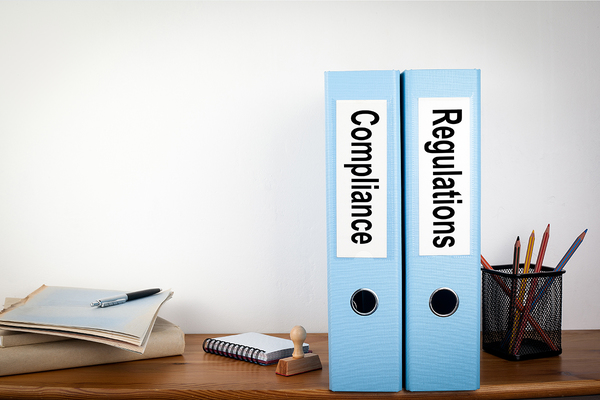Scottish government calls on RSLs to prevent evictions, as regulator postpones standard engagement
Scotland’s housing minister has called on social landlords to do everything they can to prevent evictions occurring as a result of coronavirus-related hardship, and has said the government is “actively considering” how to provide support.
In a letter addressed to all registered social landlords (RSLs) and local authority directors of housing sent today, Kevin Stewart said: “It is absolutely critical that we work together to ensure that no tenant is evicted because of any financial hardship suffered as a result of coronavirus.
“I am calling on you to ensure that you do all that you can in this regard, and in turn we are actively considering how best we can support landlords and tenants to ensure no evictions take place.”
The letter was followed by a move by the Scottish Housing Regulator to redirect its focus to the impact of the outbreak, announcing in a letter to landlords sent this afternoon that it had delayed its standard regulatory work. It also outlined new requirements concerning reporting on disruption caused by the pandemic.
It said: “From today, we will move our focus to monitoring the impact of coronavirus (COVID-19) on social landlords.
“Landlords (including local authorities providing homelessness services only) must notify us of any changes to service levels (including closure of offices or facilities to the public), significant service disruption or financial impact as a consequence of coronavirus (COVID-19).
“We will use this information to identify emerging issues and serious risks to tenants, people who are homeless and other service users. We then will provide the Scottish government with regular situation reports to help in its co-ordination of the national response to the pandemic.”
The letter states that the publication of engagement plans that had been planned for 31 March 2020 has now been postponed other than for the “most critical cases”.
It continued: “We are postponing all but the most critical regulatory engagements to allow landlords and us to focus on the most serious existing risks or those that emerge from the current pandemic.”
The timescales for landlord submissions to the regulator have also been extended, and will be “[kept] under review”, with the deadline to submit the annual return on the regulatory charter, five-year financial projects and loan portfolio return delayed until the end of July.
It added: “We will contact all local authorities soon on arrangements for monitoring the impact of the pandemic on services for people who are homeless.”
Yesterday, the English regulator announced that it had “paused” in-depth assessments with providers, as it responded to the latest government advice concerning the outbreak.
Government support
Mr Stewart said in his letter that the Scottish government is engaging directly with the regulator and representatives from the sector as the coronavirus situation develops, and added: “[We] will continue these discussions to fully understand the impact this is having on your business and consider how government can support you.”
The minister continued: “I know many of you will already be providing advice and support, including financial advice, to help tenants to sustain their tenancy at this difficult time and I would ask you to prioritise this activity as part of your coronavirus response and we thank you for the work you are currently doing in this area.”
Mr Stewart said that those affected by the virus who are concerned about meeting rent payments can claim Universal Credit, including support for housing costs if eligible.
He said: “We would ask you to urge your tenants to apply for statutory sick pay and Universal Credit where they are eligible. We would also urge you to encourage them to speak to you as soon as they are in financial difficulty as it may mean that they are unable to pay their rent at this time.”
Earlier today, Aileen Campbell, Scotland’s communities secretary, announced a £350m support fund to help councils, charities, businesses and community groups affected by coronavirus. It is aimed at enabling them to “respond swiftly and according to local need for people impacted economically or through reduced contact with society”.
The funding will be allocated to existing and new funding streams, including a £95m package for local authorities made up of £50m in Barnett consequentials from the UK government’s £500m Hardship Fund, and £45m added to the existing Scottish Welfare Fund, which makes community grants and crisis grants available to those in immediate need.
Other funds will include a £50m ‘Wellbeing Fund’ to help charities and organisations that require additional capacity to work with at-risk people who may be worst affected by the crisis, including homeless people and those experiencing fuel poverty. And a £40m ‘Supporting Communities Fund’ will be used to support community efforts at a local level, including supporting “people at risk because of age, isolation, carers, homeless people and asylum seekers”, as well as “signposting people to sources of help such as applying for benefits”.
Ms Campbell said: “This pandemic will disrupt lives like never before and cause financial hardship and negatively impact on our well-being. Be assured, however, that protecting and supporting people during these unparalleled times is the absolute focus of this government.
“Our funding package will be focused on delivery, not bureaucracy or red tape. Local authorities, local businesses, community groups and the third sector know and understand the support needs of their communities the best. Where people and organisations have solutions or ideas, I want to hear them.”
The Scottish Housing Regulator’s 18 March notice to landlords in full
Coronavirus (COVID-19)
The UK and Scottish Governments have now escalated the national response to the Coronavirus (COVID-19) pandemic and have introduced additional measures to limit the spread of virus. We recognise the unprecedented circumstances that social landlords are facing as a consequence of the pandemic and that they will be working very hard to manage and mitigate the impact on their operations and to safeguard their tenants, people who are homeless and other service users. We appreciate that this means that landlords will be prioritising that work over other more routine activity. We will now align our regulatory approach to these new circumstances.
Reporting the impact of Coronavirus (COVID-19)
From today, we will move our focus to monitoring the impact of Coronavirus (COVID-19) on social landlords. Landlords (including local authorities providing homelessness services only) must notify us of any changes to service levels (including closure of offices or facilities to the public), significant service disruption or financial impact as a consequence of Coronavirus (COVID-19). We will use this information to identify emerging issues and serious risks to tenants, people who are homeless and other service users. We then will provide the Scottish Government with regular situation reports to help in its coordination of the national response to the pandemic.
Changes to our regulatory approach
We are postponing the publication of updated Engagement Plans planned for 31 March 2020 for all landlords other than for the most critical cases. We will shortly publish updated Engagement Plans for those landlords. We are postponing all but the most critical regulatory engagements to allow landlords and us to focus on the most serious existing risks or those that emerge from the current pandemic.
We are also extending the timescales for all landlords to submit the Annual Return on the Charter and for RSLs to submit the Five Year Financial Projections and the Loan Portfolio Return to the end of July. We will keep this date under review as the current situation develops.
We will contact all local authorities soon on arrangements for monitoring the impact of the pandemic on services for people who are homeless.
We will continue to work closely with the Scottish Government and landlord representative bodies to coordinate our response to the current situation.
Please contact your Engagement Plan lead if you have any questions on this.
RELATED









